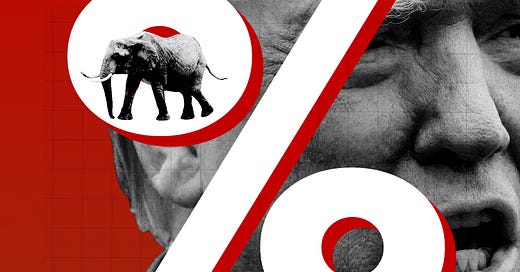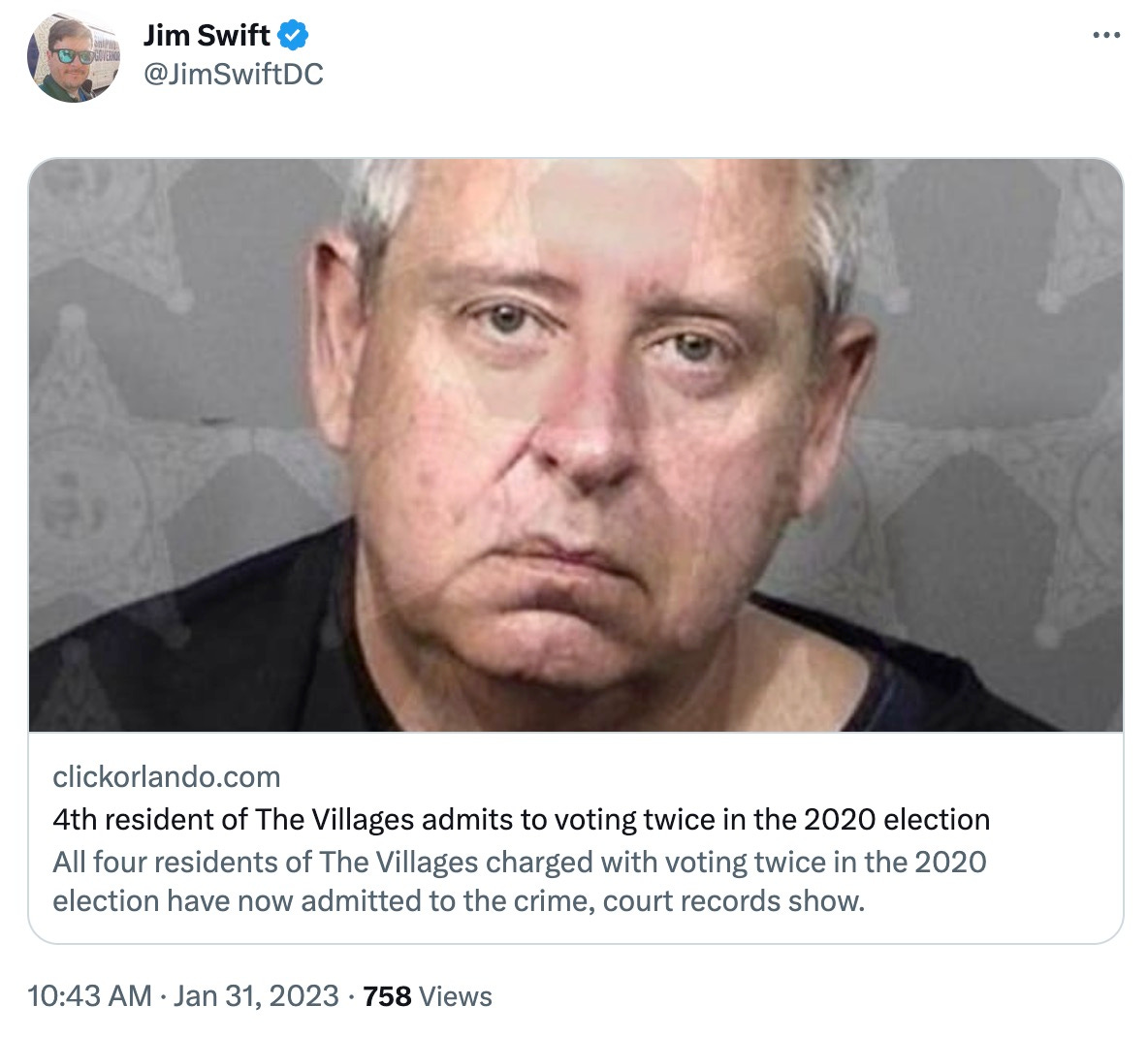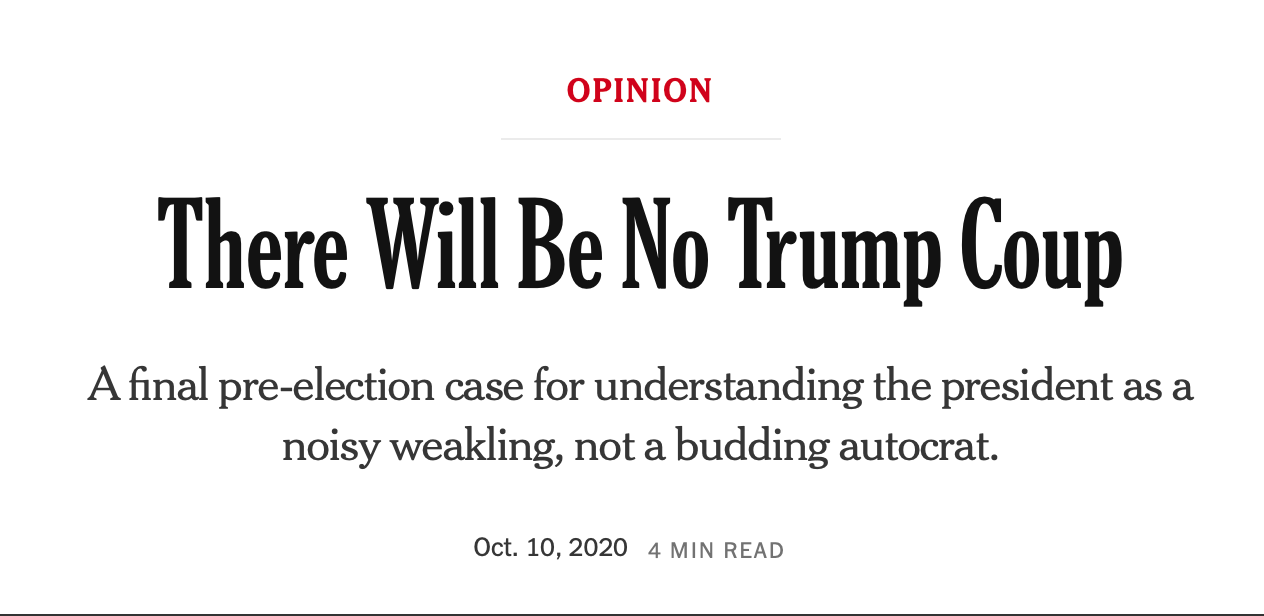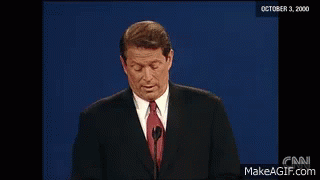If Trump Goes Third Party, Republicans Are Screwed
He doesn't need to take 28 percent of the party's base with him.
We had a great discussion about police reform in the comments yesterday. I’m keen to continue it on Thursday Night Bulwark this week when I’ll be joined by my colleague Ted Johnson and special guest Radley Balko, who wrote the book on this stuff.
Mark it down now. It’s going to be a good discussion.
1. Trump 2024
Before we start, some breaking news on the MASSIVE FRAUD from the RIGGED election:
This is my shocked face. It’s always the ones you most expect.
Moving on: Sarah made a bunch of news this morning with her poll about Always Trumpers. I’m sure you’ve seen it. If not, the most interesting number is that 28 percent of Republican respondents said they’d vote for Trump over either an R or a D if he made a third-party run in 2024.
Certain members of the Match Throwing Club . . . scoffed at this idea. Ross Douthat explains that, “Trump is unlikely to run third party and 28 percent of the GOP primary base isn't actually going to vote for a spoiler if it's DeSantis v. Biden.”
As for the first part of this wishcasting analysis, I will remind you that Ross Douthat does not have a perfect history of understanding what Donald Trump will or will not do:
I don’t know that Trump would run a third-party campaign if he lost the Republican nomination. But I do know that if Trump were to lose the Republican nominating contest, he could bring in a lot of money by running a third-party campaign.
And if the question is: “Trump could make a lot of money by doing X; will he do X?”
Well, then the answer is usually: Yes.
But let’s put aside the most speculative part of Douthat’s claim. The more interesting contention is that Trump couldn’t possibly get 28 percent of Republican primary voters to give him their votes in a general election, therefore, Republicans have nothing to worry about.
Is Douthat correct that this means Republicans have nothing to worry about? Let’s ask this guy:
Oh, I’m sorry. Still too soon?
Since the 2000 election the American political landscape has changed dramatically. Most states are no longer competitive at the presidential level, which has increased the leverage of a handful of competitive states. Meaning that the Republican nominee









